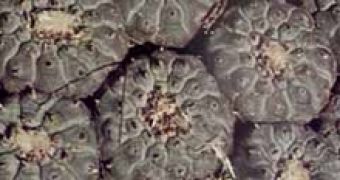Unlike other hallucinogenic drugs, the mescaline doesn't cause mental or behavioral problems associated with long-term use, a study on Native Americans carried out by researchers at McLean Hospital and Harvard proved.
Mescaline is a psychedelic hallucinogenic drug and entheogen of the phenethylamine family. It is either synthesized (as mescaline sulfate) or extracted from the peyote cactus (Lophophora williamsii), the San Pedro cactus (Echinopsis pachanoi), or the Peruvian Torch cactus (Echinopsis peruviana.)
Users typically experience visual hallucinations and radically altered states of consciousness, often experienced as pleasurable and illuminating, but occasionally as accompanied by feelings of anxiety or revulsion.
According to the American Indian Religious Freedom Act Amendments of 1994, legitimate members of federally recognized tribes are permitted to use peyote, a Class 1 controlled substance as classified by the Drug Enforcement Administration, as part of their religious rituals.
In order to study the effects of peyote, the researchers recruited three groups of Navajos with ages ranging from 18 and 45 years.
Following a breathalyzer exam to assure that they were alcohol-free at the time of the testing, the recruits were subjected to a battery of 10 neuropsychological tests, including subtests looking at anxiety, depression, loss of behavioral and/or emotional control, and life satisfaction.
"We found no evidence that these Native Americans had residual neurocognitive problems," H. Halpern, M.D., of the McLean Hospital said.
In fact, peyote users scored significantly better than non-users on the "general positive affect" and "psychological well-being" measures, he added.

 14 DAY TRIAL //
14 DAY TRIAL //